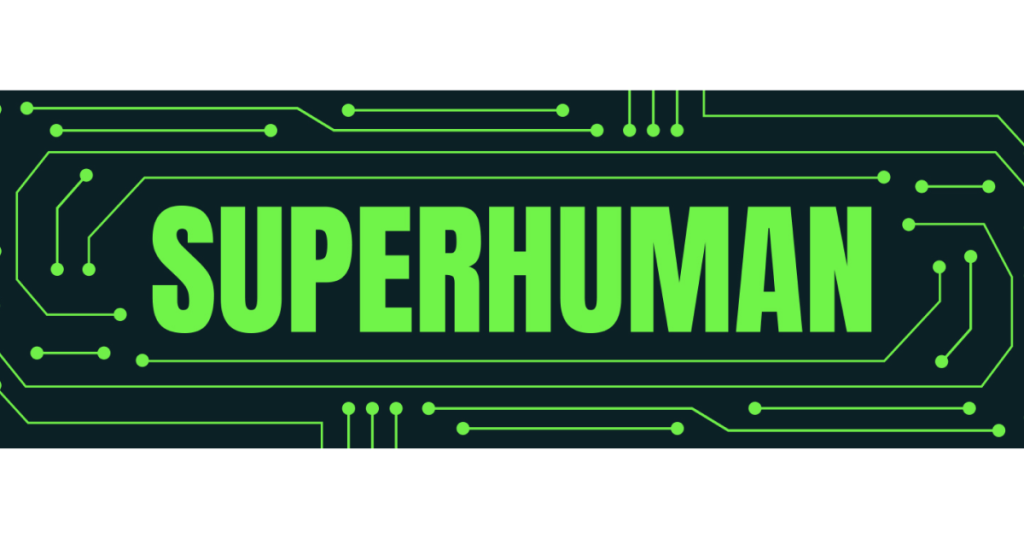AI-Powered Drug Discovery

Imagine a world where discovering new medicines happens in a blink. AI is making this a reality. It’s not just wishful thinking; breakthroughs are happening right now. Innovative techniques are speeding up processes that once took years.
AI is reshaping healthcare like nothing before. Within this framework, the landscape of drug discovery is undergoing transformative changes. Fast, efficient, and precise methods are being pioneered. This transformation promises to redefine how we approach medicine and treatment.
The Rise of AI in Medicine
AI technology is set to revolutionize drug discovery by making processes more efficient. We are witnessing unprecedented changes in how new medicines are discovered. This will lead to quicker and more accurate results, bringing hope to patients worldwide.
Meta AI’s Milestone
Meta AI has achieved remarkable growth in a short time. With 500 million users, it shows the potential and trust in AI technologies. Engagement across platforms like Facebook and Instagram is soaring, illustrating AI’s expanding influence.
Mark Zuckerberg highlighted these achievements recently. The company’s growth suggests a future dominated by AI assistants. This trend showcases the inevitable rise of AI in various sectors, including healthcare.
AI Transforming Pharmaceutical Industries
AI is not just fast; it’s smart. Automated processes mean fewer errors, promoting safety in drug development. This gives pharmaceutical firms more accurate results, helping to identify potential drugs faster.
The impact of AI goes beyond speed. AI-driven analysis offers deeper insights into complex biological data. This ability turns raw data into meaningful knowledge, enabling scientists to make informed decisions. The possibilities are endless as AI continues to evolve and improve.
Faster drug discovery means earlier treatments for patients. Diseases can be tackled more effectively, improving the quality of life globally. AI’s precision helps tailor medications to individual needs, marking a shift towards personalized healthcare solutions.
Atlas and Innovative Partnerships
Boston Dynamics and Toyota Research Institute are pushing AI’s boundaries. Their collaboration enhances AI’s adaptability and autonomy for complex tasks.
Atlas, the advanced robot, demonstrates AI’s power in automating specific roles. It efficiently handles complex tasks, proving AI’s applicability across diverse fields. Collaborations like this pave the way for further AI innovation.
The synergy between these organizations signals new opportunities. Such partnerships are vital, accelerating AI’s integration into various industries. The road ahead looks promising as AI partnerships continue expanding.
Seattle’s AI Ventures
Seattle is becoming a hub for AI-driven protein design. Archon Biosciences, a startup, aims to revolutionize how proteins are designed. With new funding, the company intends to leverage AI for crafting precise protein models. This innovation has significant implications for medical research and treatment.
Custom proteins designed with AI can boost antibody effectiveness. This breakthrough could hasten drug development, offering better solutions for diseases. By improving how compounds function in our bodies, AI is set to enhance medical outcomes.
The value of AI in medicine is growing rapidly. Predictions indicate the industry could be worth $50 billion soon. This highlights AI’s potential in transforming healthcare, benefiting both patients and providers.
AI Tools Enhancing Productivity
Several AI tools are emerging to help boost productivity in various fields. From converting training materials into engaging formats to analyzing market insights, AI’s influence is far-reaching.
Inncivio transforms mundane tasks into engaging experiences, enhancing learning. Klue provides market insights, informing strategic decisions. These tools illustrate AI’s growing role in everyday productivity.
These tools are not competition, but allies. They are designed to enhance efficiency, allowing users to focus on core tasks. As AI tools become more accessible, their adoption is set to grow exponentially.
AI in Daily Tech
Tech companies are embracing AI at a rapid pace. Apple’s new products showcase AI’s potential in consumer electronics.
The MacBook Pro with an M4 Max chip is a testament to AI’s role in technology advancement. Its improvements in battery life and processing power highlight AI’s contribution to consumer products.
AI-driven technologies are reshaping user experiences. From smarter gadgets to intuitive software, AI’s presence in technology is enhancing daily life. Its influence is only set to increase, offering new possibilities for the future.
Understanding AI Impact
Studies reveal AI’s similarities to the human brain. This understanding may unlock new approaches in AI development.
Research indicates that AI systems develop complex structures akin to brain lobes. This discovery could significantly advance AI systems, enhancing their functionality and interaction capabilities.
The future of AI appears bright as understanding deepens. As research continues, AI promises to transform how we perceive and interact with technology.
The AI Healthcare Revolution
AI’s role in healthcare is a game-changer. Its implementation is set to transform patient care and treatment approaches.
From diagnostics to personalized treatment plans, AI is revolutionizing how healthcare providers operate. This innovation is increasing accuracy and efficiency in healthcare services.
AI-driven healthcare solutions promise to benefit patients globally. With ongoing advancements, the integration of AI in healthcare will continue to evolve, offering improved treatments and outcomes.
AI is not just about the future; it’s about now. Its impact on drug discovery is profound, promising improved healthcare solutions. As we continue to harness AI’s potential, the possibilities for better treatments and patient outcomes are vast.






